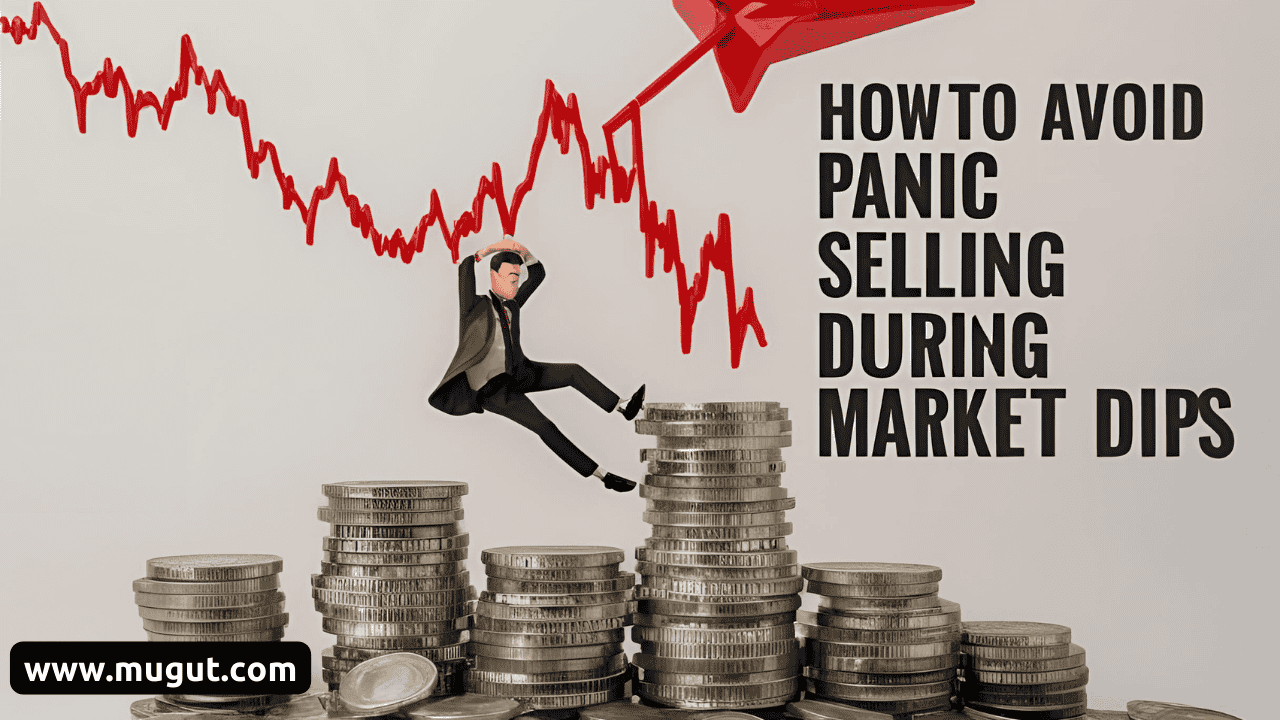The stock market is never predictable. Sometimes, everything looks green, and the next day, the portfolio turns red. The biggest challenge in such moments is to control your emotions. Because as soon as the market falls, the mood of panic selling develops. But is this the right approach? Not at all! In this article, we will talk about how to avoid panic selling during the market dip. And yes, just like we normally talk, in simple and easy way. So, let’s start.
What is panic selling?
Panic selling means selling your stocks without thinking as soon as the market falls just because you are scared. People think that if they don’t sell now, they may suffer more losses. But in most cases, this decision becomes a long-term loss.
Real Example:
The market crashed in March 2020 due to COVID-19. Many people sold in panic. But those investors who had a little patience, doubled their returns in 1-2 years.
Reasons for Panic Selling
Let’s understand why people do panic selling:
1. Fear of Loss
Most common reason – “I am losing my money”. When the portfolio is red, emotions are triggered.
2. Lack of Knowledge
Many people invest only on tips. When the market falls, they do not understand what is happening, so they sell and get out.
3. Short-Term Mindset
People invest for the long-term, but they do not have patience. They are afraid of seeing short-term losses.
4. Media Hype
The fear doubles as soon as we see headlines like “market crash” on news channels and social media.
How to avoid panic selling?
Follow these steps and stay away from panic selling:
1. Keep your investment goal clear
Every investor has a goal: retirement, buying a house, or long-term wealth. When your goal is clear, temporary dips do not shake your confidence.
2. Keep an emergency fund ready
When you have an emergency fund, you do not need to withdraw money during market dips. This saves you from selling your investment.
3. Understand market history
The stock market always goes up and down. But it grows in the long term. If you look at the data of the last 20-30 years, there has been recovery after major crashes.
4. Diversification is a must
If your money is in different sectors or asset classes, then if there is a loss in one place, it will be balanced from the other place. This reduces the chances of panic selling.
5. Keep SIP Continue
Do not stop your Systematic Investment Plan (SIP) during the market dip. In fact, investing then is even more beneficial because units are cheaper.
6. Handle your emotions
When the market falls, do one thing: close the app and go for a short walk. It is better to take a break than making emotional decisions.
You should read some of our articles to know more about trading and emotional intelligence:
-
5 Signs You’re Making Emotional Decisions in the Stock Market
-
Emotional Intelligence in the Stock Market: The Hidden Skill Every Investor Needs
7. Take professional advice
If you are not able to understand what to do, then talk to a financial advisor. He will guide you according to your goals.
Common Mistakes to Avoid
1. Checking Portfolio Frequently
If you look at your portfolio daily, even a small fall will seem big. It is better to check it once a week or month.
2. Following Herd Mentality
Are you also selling because others are selling? This is the most dangerous mindset.
3. Trusting Rumors
Stay away from rumors like “the market is going to crash” until you have solid data.
4. Not Accepting Losses
Sometimes it is better to accept losses if the stock is fundamentally weak. But it is not right to sell everything in panic.
Reframe Your Mindset
To be successful in the stock market, mindset is the most important. Look at the market dip as an opportunity, not a threat.

Think Like This:
- “Sale is going on, quality stocks are available at cheap rates”
- “This is a long-term journey; a small fall does not matter”
When the mindset is positive, then you will not make emotional decisions.
Bonus Section: What to do in The Market Dip?
1. Identify quality stocks
The stocks of top companies whose fundamentals are strong, their stocks become more attractive in a dip.
2. Do sector analysis
In every market dip, some sectors fall more, and some remain stable. Keep an eye on defensive sectors like FMCG, pharma, and utilities.
3. Increase SIP
If you are financially ready, you can increase the SIP amount a little during the market dip.
4. Rebalance your portfolio
Review your portfolio during the dip and make the correct allocation. Reduce overexposed assets and increase underexposed ones.
Power of Long-Term Investing
1. Compounding
The longer the investment period, the more the magic of compounding will work.
2. Patience Is Profit
The investor who avoids panic selling earns the most in the long term.
3. Real-Life Example
Warren Buffett, one of the best investors in the world, buys stocks during market crashes, not sells them. His mantra is “Be fearful when others are greedy, and be greedy when others are fearful.”
Conclusion
Stock market dips are challenging for everyone. But if you use logic and strategy instead of emotional decisions, you will avoid panic selling. There is a recovery after every fall; you just need patience and planning.
So next time when the market dips, remember this article before opening the app. Remember your goals, portfolio and long-term vision. Only those who maintain discipline in the stock market get success in the stock market.
I hope this was a helpful article for you. If you have any questions or suggestions, please let us know using our comment box.
Thank you for reading this article. Have a great day.
